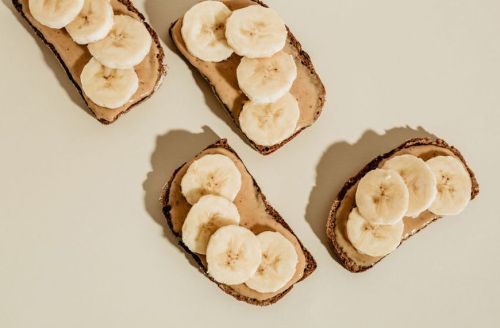5 Pervasive Myths About Protein a Functional Medicine RD Wants To Put To Rest
An RD debunks top protein myths. Yes, getting enough protein on a plant-based diet is possible (and no, protein powder isn't needed).

While nutrition recommendations can come from a place of good intent, it’s easy for some to get skewed, misunderstood, or even develop into full-blown myths. A few that come to mind are that you shouldn’t eat fruit at night, that drinking cold water can slow down your metabolism, and that all sugar—including the kind naturally found in that fruit you’re noshing on before bed—is bad. False, false, and false; and in my case, fortunately so, as these are all mainstays in my dietary routine.
Experts in This Article
When it comes to myths around macronutrients, it’s crucial to set the record straight, stat. Since we need them to fuel our bodies day in and day out, misinformation can quickly take a turn for the worse. Ahead, Sam Schleiger, MS, RDN, CD, CLT, IFNCP, a functional medicine dietitian based in Milwaukee, Wisconsin, helps us fact-check some of the most common protein myths.
5 protein myths a registered dietitian wants to debunk
Myth #1: You can’t get enough protein on a plant-based diet
While it’s true that not all protein sources are equal in quality and composition, it’s perfectly possible to get enough protein on a plant-based diet. You just have to be strategic with your plates and pairings. “Animal sources like meat, fish, and eggs often contain complete proteins,” Schleiger explains. Not as many plant foods do on their own, with exceptions including but not limited to soy, buckwheat, quinoa, pistachios and chia seeds.
In most cases, plant-based eaters can combine different foods to ensure they consume an adequate amount of all amino acids per day. Think: yummy bites like peanut butter toast and hummus with pita.
“Most people can meet their protein needs with a nutrient-dense diet prioritizing high-quality and ample amounts of protein sources at each meal and snack.”
—Sam Schleiger, MS, RDN, CD, CLT, IFNCP
Myth #2: All protein bars make for a healthy snack
It’s not only the amount of protein you consume daily that matters; the type and quality are important considerations, as well. If you feel like you don’t get enough of the macro in your typical diet and think you’ll effectively, quickly, and cheaply cover your bases with any old protein bar, Schleiger says this isn’t a winning strategy. “Many are highly processed and may contain added sugars and unhealthy ingredients,” she explains. But the dietitian doesn’t give a hard pass to all protein bars. She advises choosing ones with high-quality ingredients, minimal additives, and no artificial sweeteners.
Myth #3: You need protein shakes to meet your health goals
Similar to protein bars, protein powders and shakes can be convenient and helpful to boost your protein intake. That said, they’re neither completely necessary nor the ideal way to reach your protein needs. Whole foods still remain the gold standard, so prioritize them for snacks and meals whenever possible. “Shakes are useful when you struggle to get enough protein from food alone or for post-workout recovery,” notes Schleiger. Again, just be conscious of extras like sugars, additives, and fillers when the time calls for a quick blended bev.
Myth #4: You have to eat protein right after a workout
Anyone who’s ardently sought after fitness or athletic goals (with an eye on muscle gains and recovery alike) has likely heard that they should eat protein directly after a sweat sesh. According to Schleiger, more recent research is putting this age-old protein myth to rest. “While post-workout protein can aid recovery, the ‘anabolic window’ is broader than once thought,” she explains. “As long as you have a balanced diet and consume protein within a few hours after exercise, you should be fine.”
On this point, the quality of your protein and how much you get in your overall diet are paramount to when you eat it in relation to your workouts.
Myth #5: You need tons of protein to build muscle
Yes, getting enough protein is essential to build, maintain, and repair muscle. (Not to mention fuel every single cell we have, power our bodies, help regulate hormones, promote healthy aging, and much more.) But Schleiger says that you don’t need excessive amounts of it to gain and maintain muscle… or for any other reason. In fact, “Consuming more protein than your body can use won’t necessarily lead to increased muscle growth and may even strain your kidneys,” she cautions. (According to Stefani Sassos, MS, RDN, CDN, NASM-CPT, 30 grams is an ideal upper limit of protein intake for each meal.)
Whether you want to bulk up and get stronger or simply yield wellness gains aplenty, adhering to a well-rounded, balanced diet should do the trick. “Most people can meet their protein needs with a nutrient-dense diet prioritizing high-quality and ample amounts of protein sources at each meal and snack,” Schleiger concludes.
Sign Up for Our Daily Newsletter
Get all the latest in wellness, trends, food, fitness, beauty, and more delivered right to your inbox.
Got it, you've been added to our email list.










